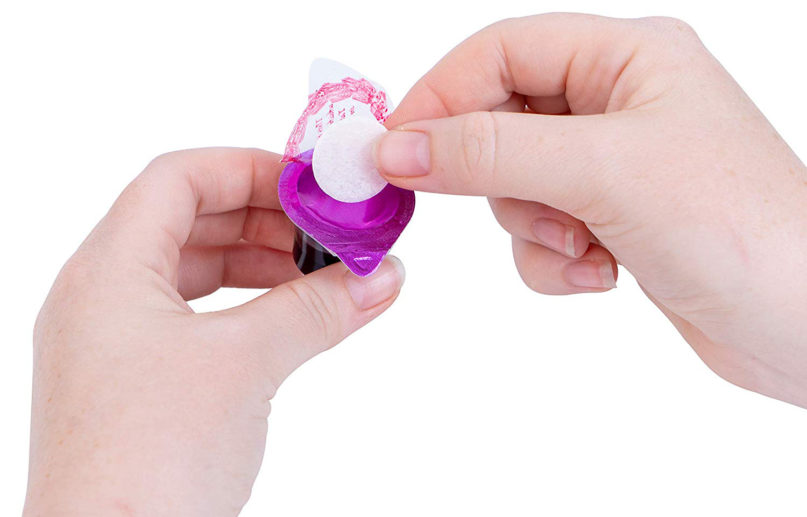(RNS) — Every week at University United Methodist Church in Chapel Hill, North Carolina, congregants come forward for Communion.
But in light of concerns about the new coronavirus, the church has ordered boxes filled with hundreds of prepackaged Communion cups and wafers.
“In a variety of ways, we’re just minimizing the level of physical touch that’s happening in the life of the church while still trying to continue somewhat normal activities,” said the Rev. Justin Coleman, who is coordinating with his staff and communicating with fellow clergy in his area about best practices for corporate worship under the new circumstances.
“What we’re saying related to Communion is that what we’re trying to do is minimize any kind of unnecessary touch here.”
RELATED: Episcopal diocese suspends Communion wine, drains baptismal fonts due to coronavirus

The Rev. Justin Coleman. Courtesy photo by Heather Varner
Coleman said the purchase of the special cups is part of a “proactive way of thinking about our adjusting practices moving forward” along with changing how people greet one another, fill out registration cards to note their presence and contribute to the weekly offering.
His historic church of some 1,800 members — with children’s and youth ministries as well as a significant percentage of senior adults — is far from the only one considering such packaged products for a sacred tradition across a range of Christian churches.
“Yes, we have seen a tenfold increase in sales of these items,” said Audrey Kidd, an executive of the United Methodist Publishing House, when asked if the church supplier Cokesbury had received more requests for the packaged option for Communion.
A spokesperson for LifeWay Christian Resources, an arm of the Southern Baptist Convention that offers church supplies, said it has seen a slight increase in the sale of Fellowship Cups, pre-filled Communion cups that come packaged with both juice and a wafer, but it is unknown how long or if that trend will continue.

Robert Johnson. Photo courtesy of Compak Companies
Celebration Communion Cup, a Florida-based manufacturer of a similar product, has also seen a recent spike in interest.
“We did see an increase of about 8% in sales closing out the month of February,” said Robert Johnson, president of the company that started in the 1990s and sells between 40 million and 50 million cups annually to suppliers, churches and individuals.
He said his customer service representatives have reported that coronavirus is “at the top of mind” of callers who are concerned about what they are touching during Communion.
“We always tell people our product is aseptically prepared, meaning it’s not touched by human hands during the process,” Johnson said. “It’s completely automated.”
The exception to that rule is when gloved staffers are involved in the quality control inspection of products, he said.
RELATED: US Chinese churches on the front lines of coronavirus vigilance
Celebration Communion Cup products use a two-seal process, with a top cellophane-like seal over the wafer that sits on top of a foil lid covering the container of grape juice. Though some customers use the products for visits to sick and shut-in members or on retreats, Johnson said they are primarily used in traditional worship services.
His website on Wednesday (March 11) was selling boxes of 100 cups for $22.99 and 500-count boxes for $87.99, prices he said were reduced for pre-Easter, and not coronavirus concerns. Fellowship Cups currently sell for $22.99 for 100 on LifeWay Christian Resources’ B&H Publishing website and $23.99 on Cokesbury’s website.
Coleman, whose church ordered some 10 boxes of Fellowship Cups — each with 500 of the juice/wafer sets — from Cokesbury, said his church staff is still figuring out the best way to safely use — and dispose of and recycle — the special cups that resemble single-serve coffee creamers at fast-food restaurants.
“Now you have contact with lips and you have extra juice in a little cup that’s left over,” he said, noting that issues of sterility go beyond just receiving Communion. “You’ve got to be careful there as well.”
He said the emphasis on trying to continue Communion emanates in part from the high regard his United Methodist Church has for the sacrament — one of two, along with baptism.

A family takes communion together at home using Celebration Communion Cups. Photo courtesy of Compak Companies
“In the tradition of our church we’d say that it’s a guarantee that you receive the grace and presence of God through the sacrament of Holy Communion,” said Coleman, of the denomination whose founder John Wesley wrote a sermon titled “The Duty of Constant Communion.” “If you’re unsure of it in any other form, be sure of it in this form.”
Dr. Amy Behrman, a member of a Presbyterian Church (U.S.A.) congregation and a professor of emergency medicine at the University of Pennsylvania, said it is wise for churches to be considering how best to offer Communion at a time when the country is dealing with flu and coronavirus cases.
“I certainly think that communal meals and Communion in particular is an opportunity for us to avoid potentially infecting each other by sharing objects, much less sharing food or drink directly,” said Behrman, who attends Overbrook Presbyterian Church in Philadelphia.
She said Communion is one of the times when churches can work to reduce risks of cross-contamination through what people eat or drink or through “fomites” that can transfer a virus.
“For instance, if I had influenza and I drank out of a cup or even used a cellphone, like I’m using right now, and then you picked it up and then you touched your mouth, you could be infected from me,” Behrman said, “ even though you and I never actually were close to each other physically.”
Coleman, the senior pastor in Chapel Hill, said his church is also considering how it might offer “pre-blessed” prefilled Communion cups and wafers to members to take home if they have to suspend in-person worship services for a time and worship via the church’s livestreamed service.
“When they engage with us virtually, they will already have been blessed,” he said of the Communion elements. “We are thinking about this taking place on a livestream, so that people at the given moment in the service could partake.”





